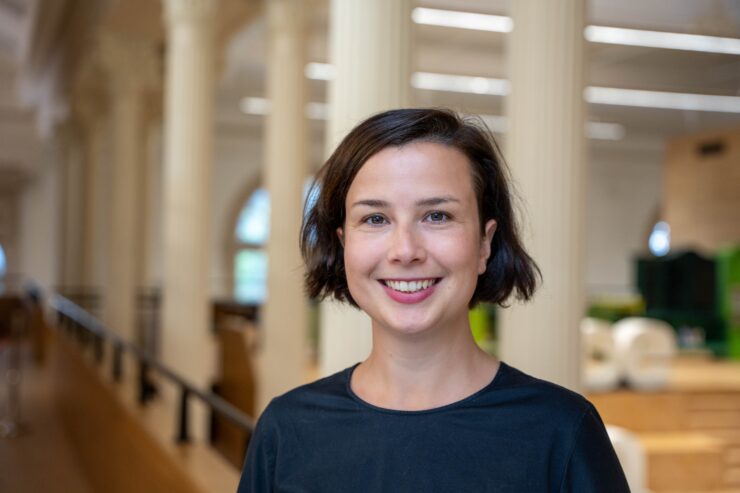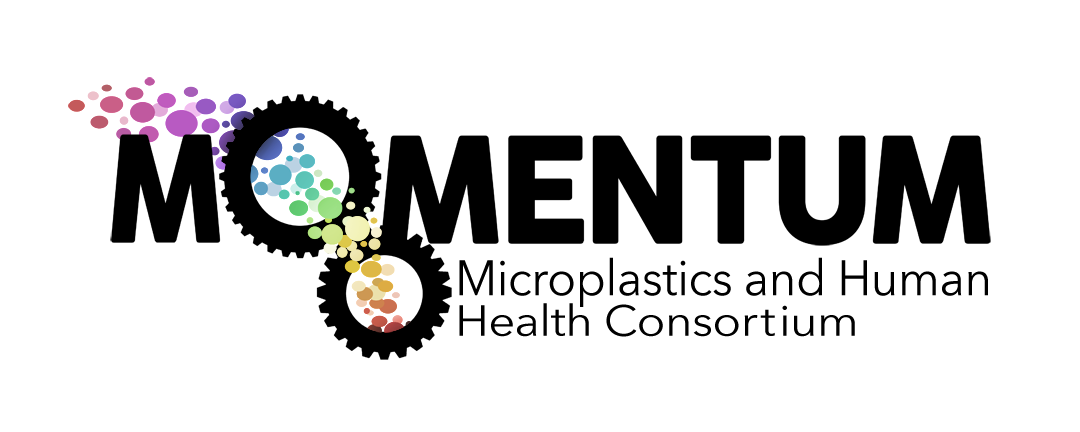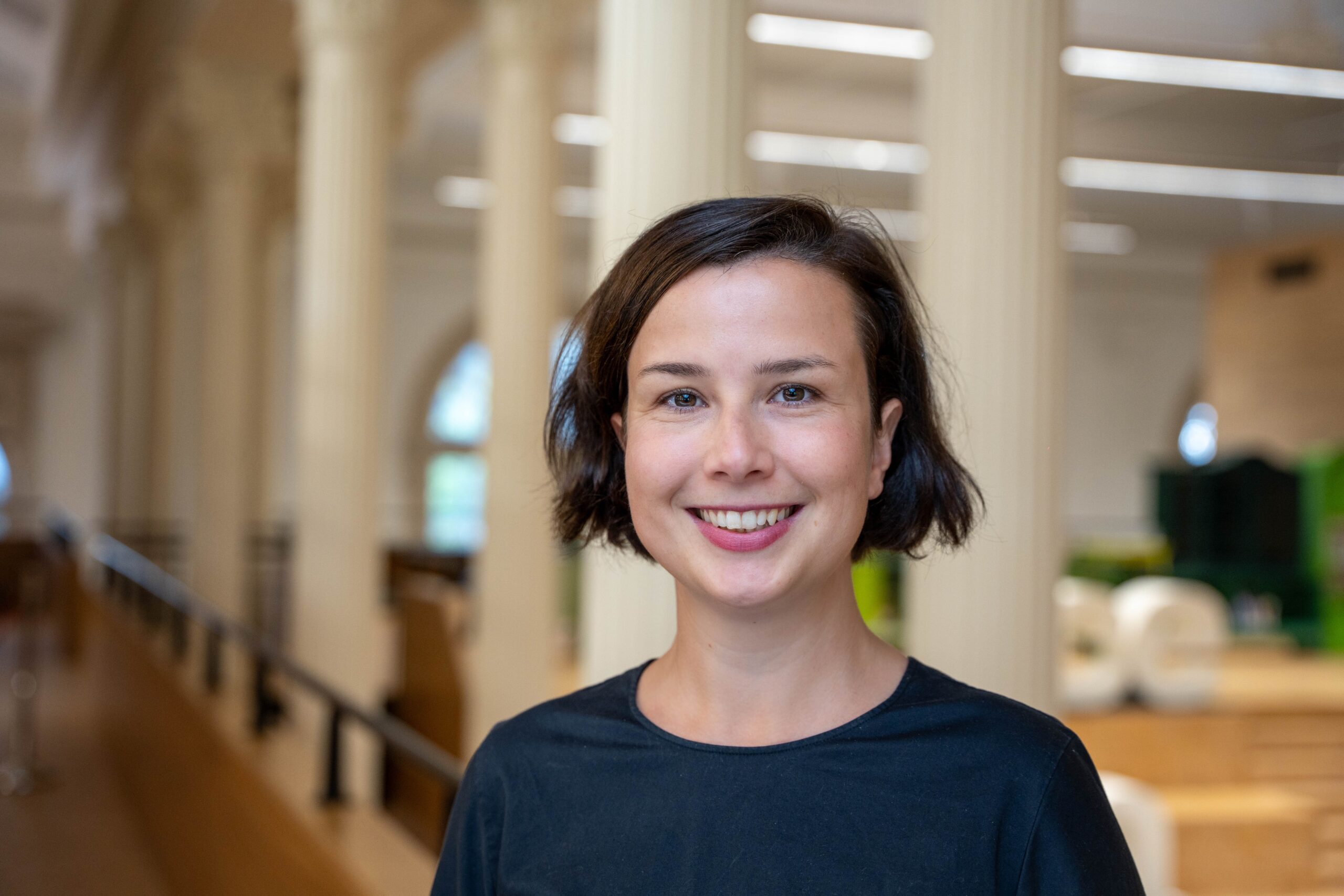News
Meet the Crew: Josefine Geiger
In February, we celebrated the kick-off of the seven new breakthrough projects funded by ZonMw. A good opportunity to get to know the project leader of one of them a bit better: Josefine Geiger of the Microplastics and Citizens project. Discover more about Josefine and her research in this edition of “Meet the Crew.”
Who is Josefine Geiger?
“I’m a social and environmental psychologist and currently work as an assistant professor at the University of Groningen. I’m the project leader of the Microplastics and Citizens Breakthrough project.”

What will you study in this project?
“We study people’s behaviour in relation to microplastics and how to promote what we call preventive and protective behaviours. People can engage in preventive behaviours to reduce their microplastics emission, while protective behaviours can protect people from microplastics exposure. Individuals can have an impact. People’s choices and decisions play an important role in reducing potential health risks. You could say that we look at the psychology behind people’s relationship with microplastics: We investigate what motivates them to change their behaviour and how to stimulate healthy behaviour change.”
“The project has two stages. We first need to get a better understanding of people’s behaviour and motivation. What do people know about microplastics? How do they currently behave? What motivates them to adapt their behaviour? And what behaviour changes are actually needed? To get answers to these questions, we interview experts and send out questionnaires to citizens. In the second stage, we want to apply what we have learnt. We aim to contribute to real solutions by developing communication material with gamification elements to encourage people to adopt preventive and protective behaviours.”
How do you change someone’s behaviour?
“First, we must raise awareness of microplastics. We know that awareness of the potential health risks of microplastics is still lacking and if people are not aware of a problem, they won’t change their behaviour. But awareness is not enough. Whether people are motivated to act, depends on many more factors, such as whether they perceive microplastics as a health risk and whether they are convinced that they can contribute to solutions. In this project, we aim to identify these factors and account for them in the communication material, combined with gamification elements.”
Where did the idea for a serious game come from?
“We wanted to develop something engaging, fun and intrinsically motivating. There are so many crises in the world already and people may not be very responsive if we only present microplastics as yet another crisis. We were immediately excited about the idea of developing a prototype of a serious game. This way, we can raise awareness and promote preventive and protective behaviours in a positive way. People may be more open to the information this way. We think it will also help us to reach a wider audience. People often only read about topics that they’re already interested in. Elements of a game could help to introduce them to something new, such as microplastics, in an accessible way.”
“There is still a lot to learn about how games work in promoting behaviour changes. So, we want to investigate how effective they are. Does a game work better than solely providing information, for example? We will compare a group of people who engage with the game prototype with a group who does another activity. We will then evaluate whether people in the first group are more aware of microplastics and more willing to change their behaviour. This way, we can have both a theoretical and a practical impact. We can contribute to the field of behaviour change interventions and share the game prototype with other researchers and practitioners. They can then use it to raise awareness of microplastics and promote preventive and protective behaviours.”
What’s the value of collaborating with MOMENTUM?
“I’m a great supporter of interdisciplinary research. I strongly believe that societal challenges can only be solved with an inter- and transdisciplinary approach. MOMENTUM offers unique collaborations. We are very excited to be so close to the emerging research into microplastics. We want to work together with partners in MOMENTUM to better understand what we need to communicate to citizens. What are relevant behaviours for individuals? What are the newest insights into the health risk of microplastics?”
“During our workshop at the MOMENTUM kick-off event in February, we already received very useful input about relevant preventive and protective behaviours. We will continue to work together to translate this into clear and simple messages. We will then incorporate this information into the serious game prototype to effectively convey evidence-based knowledge about microplastics to the public. Other MOMENTUM participants can use the methods we’re developing to increase the reach and impact of their research and help achieve solutions.”
Why are you personally motivated to apply your project to microplastics?
“A friend of mine has been interested in the topic for a few years and she brought it up every now and then. So, I gradually became more aware of their presence and potential health risks. When Irene Maltagliati, my project partner, approached me around two years ago, and asked me to start working on the topic of microplastics, I was immediately enthusiastic. It’s a new area and we don’t know much about it yet. This means we can have a real impact, which is very exciting.”
What do you like to do in your spare time?
“I enjoy spending time with my family, and being outside with them. My child loves to cycle to the countryside, which we do a lot, with spring and the good weather around the corner. We have a big garden and whenever possible, you find me gardening. I really enjoy it. I also love swimming. For me, this is the best activity to clear my head. Afterwards, I’m always relaxed and very positive.”




